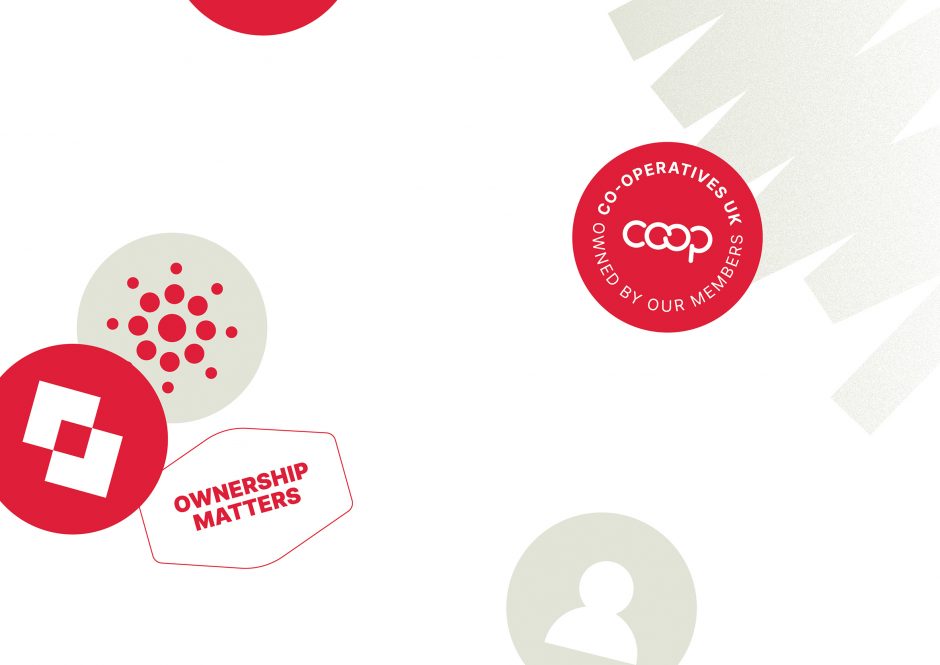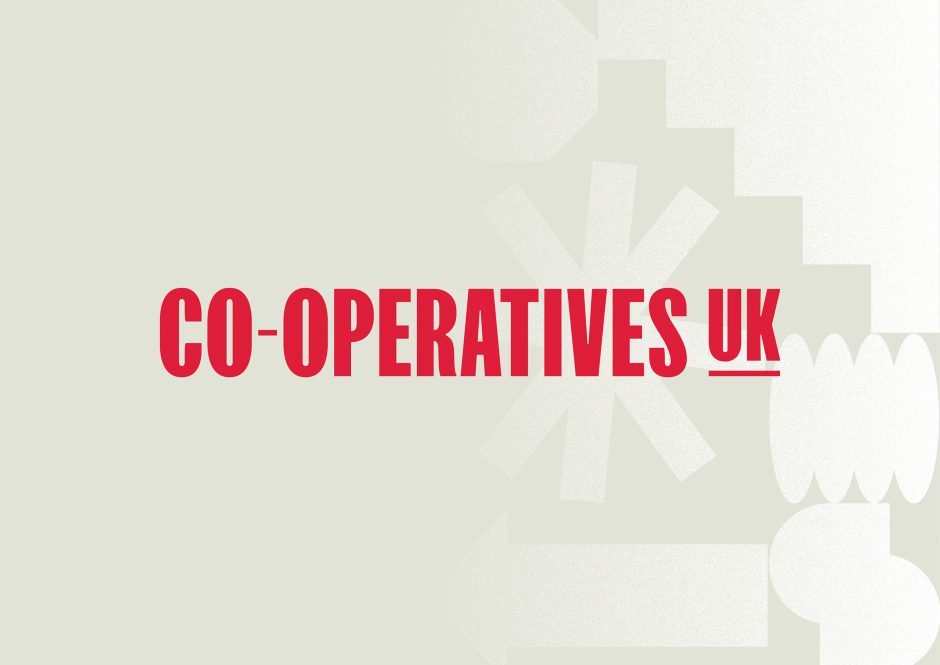Co-operatives UK, the national apex body for co-ops, has launched its new branding and three-year strategy. The new logo will run alongside a new strapline: Empowering Co-operation.
The strategy has a focus on reaching young people, embracing technology and inspiring communities. “Our aim is to inspire everyone to join a co-op, and every co-op to become a member of Co-operatives UK – to help create a fairer society together,” says CEO Rose Marley. “It made perfect sense that, as we launch an exciting and ambitious new strategy, we need a fresh look and feel to appeal to a wider audience.”
To achieve this, the organisation has been having conversations with dotCoop (which verifies the international co-op marque) and Calverts (which created the marque).
“They have a vision that the marque can be used as a stamp or badge alongside a co-op’s own branding to help raise more awareness,” says Ms Marley. “At the same time, we were wrestling with the need for Co-operatives UK to have its own identity.

“We’ve now created our own Co-operatives UK logo, with a font which is reminiscent of a letterpress stamp (referencing our heritage) and a separate co-op marque using the words ‘owned by our members’. This gives us another opportunity to explain what a co-op is to people who may not know.
“We wanted to demonstrate how other co-ops can either use the marque as their full logo or as a badge alongside their own branding, like the Fairtrade mark.”
Co-operatives UK worked with Instruct, a Manchester-based creative agency which runs a number of collaborative projects including the Design Manchester festival. “They understand the co-operative values and principles, but they are not formally constituted as a co-operative,” says Ms Marley.
“This was a decision we thought long and hard about and I was rightly challenged by the board on this, as we usually aim to work with co-operative suppliers. However, for this rebrand we recognised that co-ops have become very good at talking to each other, and we felt a fresh pair of eyes from an agency outside the movement would help us to develop a brand that appeals to the wider public. We’ve shared this thinking with many of the large retail societies and Calverts and they have been impressed.”

Instruct developed the look by pulling out key themes such as ‘co-operation’, ‘disruption’, ‘empowering’ and ‘expert’.
“The bright colours and animated shapes represent these themes and have been designed to convey our vision while appealing to a wider and potentially younger audience,” says Ms Marley. “We needed to separate Co-operatives UK as an organisation from the co-op model, in terms of branding – and that’s why we have a logo and marque alongside each other.”
She adds: “Our previous logo featured the co-op marque prominently with small writing spelling out our name and we did often get confused with other co-ops. With our new logo, it’s clear that we are Co-operatives UK. We think our new look is fresh and vibrant, but the new brand is more than just a logo. It’s how we talk about our organisation, our behaviours and the experience that people have.”
Instruct director John Owens said the process had been a “fascinating journey understanding the challenges of how [co-ops] communicate beyond the movement” and believes the new look can help Co-operatives UK reach new audiences and better engage with existing ones.
“It became clear that a key distinction needed to be made between Co-operatives UK as an organisation and the wider co-op movement,” he says. “At the same time, talks were taking place with dotCoop and we all had a bit of a lightbulb moment, which led to the use of the international marque as a badge next to the new logo. We’ve created a flexible toolkit of shapes, colours and themes that makes each campaign look different, but still part of the same suite. We’re proud to unveil the new brand.”
Violetta Nafpaktiti, managing director of dotCoop, added: “We work closely with Co-operatives UK [and] wholly support their ambitions to promote a recognisable business and consumer stamp of authority.
“At dotCoop we manage a verification process to ensure that each co-op marque and .coop domain name user is a bona fide co-operative. Co-operatives UK is one of dotCoop’s verification partners helping us to decide who is eligible to register and use the marque and domain.”
Siôn Whellens, from design co-operative Calverts and Principle Six, said: “As the original developers of the global co-op marque, the team at Calverts helped many co-op organisations adopt it successfully. Ten years on, with the wider international effort to raise co-operative identity, this is an opportunity to take it to the next level and win wider recognition.”

Now the new brand has been launched, Co-operatives UK is turning its attention to how it communicates the co-op model.
“We need simple language to explain what co-operatives are and the impact they have on the way we live, work and shop,” says Ms Marley. “The next step is to come up with some common language and resources that we can all use in a consultation.
“We’ve launched a short online survey and we’d love co-operatives to help us shape this thinking as part of the consultation.”
She acknowledges that one of the challenges facing the co-op movement is that while it has set the standard and raised the bar for all business, it now operates in “a crowded and noisy market where the language of co-operation is becoming commonplace to the consumer”.
She adds: “Although the co-operative movement […] popularised the idea of ‘business for good’ and the social economy on a worldwide basis, we’ve lost our way a bit at effectively communicating the attributes of co‑operation in the modern business world. We need to emphasise the attributes of co-operation in as many ways and places as possible and establishing the marque as a device is another way to do this.
“Our challenge now is to define simple language and tell inspiring stories so that co-operatives become part of the national consciousness. We invite the UK’s 7,000 co-operatives to join us in this mission.”